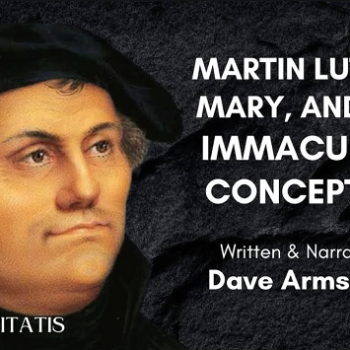4 For the development of Christian eschatology under the influence of Greek philosophical culture, see Brian E. Daley, S.J., The Hope of the Early Church: A Handbook of Patristic Eschatology (Cambridge: Cambridge University Press, 1991); Daley, "A Hope for Worms: Early Christian Hope," in Resurrection: Theological and Scientific Assessments, ed. Ted Peters, Robert John Russell, and Michael Welker (Grand Rapids: Eerdmans, 2002), 136-64. See also more specialized studies such as Charalambos Apostolopoulos, Phaedo Christianus: Studien zur Verbindung und Abwägung des Verhältnisses zwischen dem platonischen "Phaidon" und dem Dialog Gregors von Nyssa "Über die Seele und die Auferstehung" (Frankfurt: Lang, 1986).
5 Seeking to move beyond the academic enclosure of Aquinas' sacra doctrina within "historical theology," I engage Aquinas in a constructive and selective manner, rather than attempting to write historical theology. Aquinas' eschatology largely corresponds with that of the Catechism of the Catholic Church.
6 This emphasis on contemporary biblical scholarship will be contested by some scholars. For Peter Phan, e.g., developments in "interreligious dialogue, liberation theology, feminist thought, ecological theology, the new physics, and process philosophy" mean that "Christian eschatology has entered a new era in which another framework is required for interpreting both the eschaton and the eschata." Phan, "Contemporary Context and Issues in Eschatology," Theological Studies 55 (1994): 536. Given that the fundamental interpretive framework for eschatology must always be divine revelation, my contention is that an eschatology that is "adequate for our times" (536) need not thereby be one indebted primarily to the intellectual trends of our times.
7 Joseph Ratzinger, Eschatology: Death and Eternal Life, trans. Michael Waldstein and Aidan Nichols, O.P., 2nd ed. (Washington, D.C.: Catholic University of America Press, 2007), 171. Ratzinger adds, "This complicating factor in the theological appropriation of Scripture is in any case something demanded by the structure of the Bible's own affirmations. As in the case of the topic of immortality, what the New Testament offers to reflection is a beginning, not an end. Through christology, it gives a new focus to both of these questions. Yet this new center is itself in search of suitable anthropological means of expression. The Bible itself forbids Biblicism" (171).
8 Alexander Schmemann, Great Lent: Journey to Pascha, rev. ed. (Crestwood, N.Y.: St. Vladimir's Seminary Press, 1974), 12. See also Schmemann, For the Life of the World: Sacraments and Orthodoxy, 2nd ed. (Crestwood, N.Y.: St. Vladimir's Seminary Press, 1973), 106: "I know that in Christ this great Passage, the Pascha of the world has begun, that the light of the 'world to come' comes to us in the joy and peace of the Holy Spirit." Along these lines, see Georges Florovsky, "Eschatology in the Patristic Age: An Introduction," Studia Patristica 2 (1957): 235-40; Jean Daniélou, S.J., The Lord of History: Reflections on the Inner Meaning of History, trans. Nigel Abercrombie (London: Longmans, Green, 1958), 214-15; Raniero Cantalamessa, O.F.M. Cap., Easter: Meditations on the Resurrection, trans. Demetrio S. Yocum (Collegeville, Minn.: Liturgical Press, 2006), 33. The subtitle of the original Italian edition of Cantalamessa's book is Un passaggio a cio che non passa.
9 I should note that although I affirm the bodily assumption of the Virgin Mary into heaven, an account of this mystery of faith is beyond the scope of this book. On
132 • Notes to pp. 1-2
the Virgin Mary's Assumption see esp. Pope John Paul II, Redemptoris Mater, with introduction and commentary by Joseph Ratzinger and Hans Urs von Balthasar, published as Mary: God's Yes to Man (San Francisco: Ignatius Press, 1988).
10 See my Sacrifice and Community: Jewish Offering and Christian Eucharist (Oxford: Blackwell, 2005); Levering, Christ and the Catholic Priesthood: Ecclesial Hierarchy and the Pattern of the Trinity (Chicago: Hillenbrand Books, 2010). See also Terence McGuckin, "The Eschatology of the Cross," New Blackfriars 75 (1994): 364-77.
11 Regarding those who freely reject Jesus' love, I argue in my Predestination: Biblical and Theological Paths (Oxford: Oxford University Press, 2011) that the hell of the damned exists: some angels and humans are everlastingly lost. In this earlier book, I have said what I have to say about the hell of the damned, and so I do not repeat it here. For further discussion of this topic see, e.g., Carlo Leget, Living with God: Thomas Aquinas on the Relation between Life on Earth and "Life" after Death (Leuven: Peeters, 1997), 233-44; John Saward, Sweet and Blessed Country: The Christian Hope for Heaven (Oxford: Oxford University Press, 2005), 98-108.




